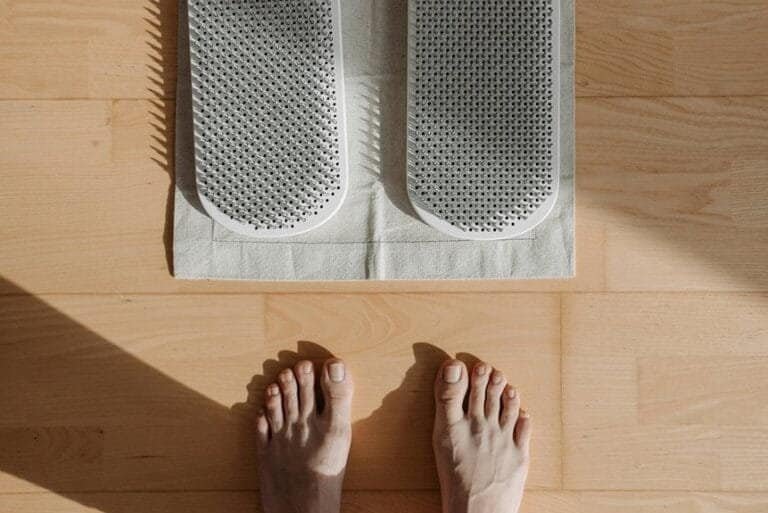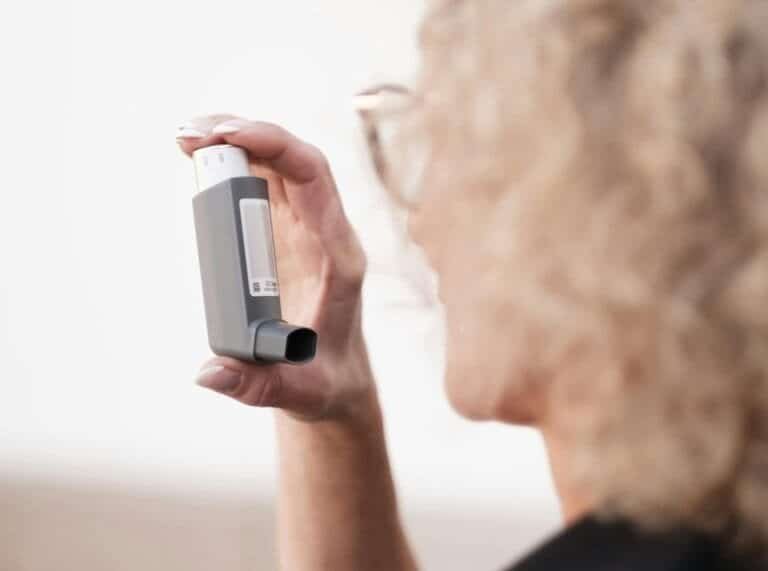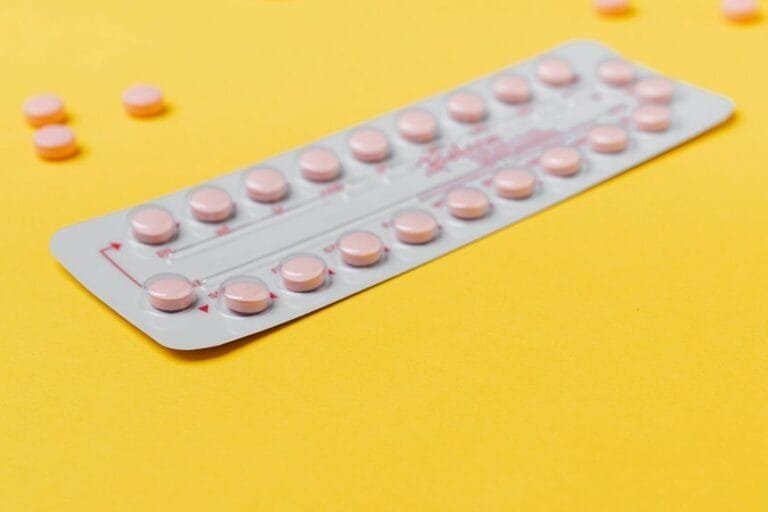Testosterone replacement therapy (TRT) can significantly enhance your mental health by reducing anxiety and depression symptoms associated with low testosterone. Low levels of testosterone often lead to irritability, fatigue, and emotional instability, negatively impacting mood regulation. TRT helps stabilize these hormone levels, which can lead to improved emotional resilience and a moderate antidepressant effect, especially for those with mild depression. Studies indicate a strong correlation between TRT and better mood, suggesting a therapeutic role in managing anxiety. Explore further details on how TRT can fit into your overall wellness strategy.
Key Takeaways
- Testosterone Replacement Therapy (TRT) helps alleviate mild depression symptoms, demonstrating moderate antidepressant effects in men with low testosterone levels.
- Improved testosterone levels enhance neurotransmitter function, positively influencing mood and reducing anxiety.
- Clinical studies show TRT has a significant odds ratio of 2.30 for diminishing mild depression symptoms compared to placebo treatments.
- Regular monitoring during TRT is essential due to potential risks, such as mood swings and cardiovascular issues.
- Lifestyle changes—like exercise, diet, and stress management—can synergistically enhance the mental health benefits of TRT.
Understanding Low Testosterone Symptoms

Understanding the symptoms of low testosterone can be vital for identifying potential health issues. Some prominent physical consequences include decreased libido, erectile dysfunction, fatigue, and reduced muscle mass. You might notice an increase in body fat, especially around your belly, which can signal a hormonal imbalance that impacts your overall well-being. Additionally, a decrease in muscle mass may hinder physical activity and affect strength, further complicating overall health.
In addition to these physical changes, low testosterone also affects your mental health. You could experience mood changes, irritability, and difficulty concentrating, commonly referred to as brain fog. These symptoms can reduce your motivation, leading to social withdrawal and lower overall life satisfaction.
The interplay between hormonal imbalance and physical consequences doesn't just affect you physically; it can lead to greater health risks, including heart disease.
Recognizing these symptoms early is essential, as they can greatly disrupt your daily life, wellness, and relationships. If you notice any of these signs, consider speaking with a healthcare professional who can assess your testosterone levels and explore treatment options tailored to your needs.
Addressing low testosterone promptly can help restore balance and improve your quality of life.
Overlapping Signs of Depression and Anxiety

Depression and anxiety often share overlapping signs that can complicate diagnosis and treatment. Both conditions frequently manifest through co-occurring symptoms like sleep disturbances, fatigue, and irritability.
You might find it challenging to fall asleep or stay asleep, which can worsen mood fluctuations and amplify feelings of hopelessness. This lack of quality sleep can lead to significant fatigue, making daily tasks feel insurmountable and straining your relationships. The impact of sleep quality on mood is particularly noteworthy, as insufficient rest can deepen feelings of despair and anxiety.
Moodiness—characterized by irritability and cognitive impairments—often blurs the lines between these disorders. Impaired focus and memory issues can arise from preoccupation with negative thoughts, and the medications prescribed for either issue might exacerbate this cognitive decline.
Additionally, physical discomfort such as muscle aches can occur, stemming from both reduced activity and sleep deprivation.
Recognizing these overlapping signs is vital for seeking appropriate treatment. By understanding how these symptoms intertwine, you can better address the underlying concerns and work towards more effective management strategies.
Addressing sleep quality and mood stability is essential for improving both mental and physical well-being.
Testosterone's Role in Mood Regulation

Testosterone plays an important role in regulating your mood, often influencing how you respond to stressors and emotional stimuli. Fluctuations in testosterone levels can greatly impact your emotional resilience. For instance, balanced testosterone promotes a well-functioning amygdala, key for processing emotions like fear and aggression.
When testosterone levels dip, the risk of emotional instability and mood disturbances increases, making it harder to cope with daily stressors.
Moreover, testosterone affects neurotransmitter regulation, including dopamine and serotonin, which are essential for mood stability and a sense of pleasure. When these levels are ideal, you're likely to experience enhanced happiness, motivation, and mental clarity. Additionally, adequate testosterone levels help maintain bone density and muscle mass, which are also linked to overall well-being.
Conversely, low testosterone may lead you to struggle with fatigue, decreased interest in activities, and increased vulnerability to negative feelings.
Testosterone also plays a fundamental role in managing stress by interacting with cortisol. Balanced levels help mitigate adverse effects of this stress hormone, fostering a calmer mental state.
Essentially, maintaining ideal testosterone levels is vital not just for physical health but also for emotional well-being, greatly impacting your ability to face challenges with confidence and resilience.
Effects of TRT on Depression

Recent studies highlight the potential of testosterone replacement therapy (TRT) in alleviating depressive symptoms among men. Evidence shows that TRT can produce moderate antidepressant effects, particularly in patients with mild depression. Those who benefit most from testosterone interventions often have lower baseline depression levels. Importantly, testosterone deficiency is prevalent among many men suffering from depressive symptoms, which underscores the significance of TRT as a treatment option.
Higher testosterone dosages over suitable treatment durations yield more notable reductions in depressive symptoms, making dosage a vital factor in success. Men receiving TRT for late-onset testosterone deficiency see improvements in mood and energy, regardless of their age. However, it's important to recognize that TRT doesn't markedly aid those with major depressive disorders, indicating a need for caution in expectations.
A meta-analysis involving nearly 1,900 participants shows testosterone's effectiveness in mild depressiveness, while systemic reviews also support the therapy's positive impact on clinical symptoms. Though some patients without pretreatment depression experience small improvements in mood from TRT, the clinical value of these changes remains uncertain.
Today's prescribing practices for TRT could benefit from monitoring testosterone levels prior to treatment, aligning expectations with evidenced outcomes. Further studies will help refine our understanding of TRT's role and efficacy in managing men's depressive symptoms.
TRT and Anxiety Improvement

Anxiety can greatly disrupt your daily life, and emerging evidence suggests that testosterone replacement therapy (TRT) may provide relief for men experiencing anxiety symptoms linked to low testosterone levels. Low testosterone is associated with increased anxiety, as it impairs the brain's ability to regulate mood and stress responses.
Men suffering from hypogonadism often report heightened feelings of anxiety, irritability, and depression due to this hormonal imbalance. TRT benefits include boosting testosterone levels back to normal ranges, which can enhance brain function and emotional control. With higher testosterone levels, you may find yourself feeling less anxious, more focused, and capable of handling daily stressors.
Studies indicate that TRT leads to significant anxiety reduction in hypogonadal men, alleviating symptoms of social anxiety disorder and improving self-efficacy during social challenges. Furthermore, the recent increase in TRT prescribing rates highlights the growing recognition of its potential benefits for mental health.
Moreover, TRT can resolve coexisting issues like depression and sexual dysfunction, further contributing to anxiety improvement. This multi-faceted approach not only targets anxiety directly but also addresses its root causes, enhancing overall mental well-being.
Clinical Evidence Supporting TRT

Emerging research underscores the positive impact testosterone replacement therapy (TRT) can have on mental health, particularly concerning depressive symptoms. Low testosterone levels correlate with increased depressive symptoms in men, particularly among the elderly.
Studies consistently link testosterone deficiency to neurotransmitter imbalances, such as reduced serotonin, norepinephrine, and dopamine, which are essential in depression. Clinical trials reveal that testosterone treatment can considerably reduce these symptoms, with a meta-analysis of 27 randomized trials showing a prominent odds ratio of 2.30 for TRT compared to placebo.
Higher testosterone dosages often yield better results, suggesting a dose-dependent effect on mood improvement. Importantly, many trial participants were on antidepressants, indicating that TRT may work as an adjunct to existing treatments rather than replacing them or testosterone alternatives.
Furthermore, the physiological benefits of TRT, including improved neuroplasticity and energy levels, further support its role in enhancing overall mental well-being.
While results are promising, clinicians should conduct thorough psychological assessments and carefully monitor health metrics before initiating treatment. More rigorous studies are necessary to refine dosage regimens and fully understand TRT's effects on depression and anxiety in men.
Prescribing Trends for TRT

There's been a notable shift in testosterone replacement therapy (TRT) prescribing trends over the past two decades, particularly among men with depression and anxiety. Between 2002 and 2013, TRT prescriptions surged by 200%, emphasizing a greater need for testosterone therapy in this demographic.
However, more than 20% of these men were initiated on TRT without adequate testosterone level testing.
Following 2013, prescribing patterns changed considerably, with a decline of over 50% in TRT prescriptions from 2013 to 2016. This drop was largely influenced by heightened safety concerns and regulatory scrutiny, including a pivotal 2014 FDA safety communication.
Additionally, while guidelines published by professional societies in 2018 aimed to refine TRT usage patterns, studies revealed inconsistent adherence to proper diagnostic protocols.
The demographics of prescribers have also evolved. Specialties like urology and family medicine have seen an uptick in prescribers, reflecting broader TRT trends.
During this period, advanced practice providers grew their share of testosterone claims, offering a glimpse into a changing landscape.
Ongoing education and adherence to guidelines remain essential for optimizing TRT appropriateness in men with psychological disorders.
Monitoring and Adjusting TRT

As men increasingly seek testosterone replacement therapy (TRT) for anxiety and depression, effective monitoring becomes essential to guarantee both safety and efficacy. You should start with an initial evaluation of testosterone levels before beginning treatment and confirm with two morning testosterone measurements.
Following treatment initiation, monitor testosterone levels one month later, and continue with regular checks every 3 to 6 months during the first year. The stabilization period of the TRT requires dosage adjustments to be made after 30 days, allowing for a full therapeutic effect.
Some experts recommend checking peak testosterone levels two days post-intramuscular injection. Additionally, make sure you monitor for potential complications by evaluating PSA levels, liver function, hematocrit, and estradiol levels periodically.
Your approach to dosage adjustments should be individualized, responding to both your testosterone levels and symptomatic improvement. If there's no noticeable improvement after six months at ideal levels, consider reevaluating the necessity of continuing therapy.
Consistent follow-up visits and adherence to monitoring schedules will aid in maximizing therapeutic outcomes while securing your safety during TRT.
Risks and Considerations of TRT

What should you know about the risks and considerations of testosterone replacement therapy (TRT)?
While TRT can offer benefits, it's important to recognize its potential cardiovascular risks. Some studies indicate an increased risk of heart attack, stroke, and venous thromboembolism, especially in patients with pre-existing heart conditions.
Additionally, it may worsen congestive heart failure and lead to an irregular heartbeat.
Equally concerning are the mental health risks associated with TRT. Some men report increased aggression, mood swings, and even psychotic episodes. Although TRT may help alleviate anxiety and depression for certain individuals, it can also decrease sperm production, impacting fertility.
It's significant to weigh these risks carefully against potential benefits.
Moreover, TRT can elevate other physical health issues, such as sleep apnea and high red blood cell counts, which raise the risk of blood clots.
Given these complexities, ongoing monitoring with your healthcare provider is critical. Regular discussions about your specific health conditions can help you navigate the pros and cons of TRT effectively.
Being well-informed empowers you to make the best choices regarding your treatment.
Lifestyle Changes and TRT

Lifestyle changes can greatly enhance the effectiveness of testosterone replacement therapy (TRT) and improve overall well-being. By implementing dietary adjustments, you can support hormone production and overall health. Focus on a balanced diet rich in vitamins, healthy fats from avocados and nuts, and lean proteins while avoiding processed foods high in sugar and unhealthy fats.
Exercise incorporation is essential; strength training and high-intensity interval training (HIIT) not only increase muscle mass but also boost testosterone levels. Aim for regular exercise sessions several times a week, combining aerobic and resistance training.
Sleep optimization can't be overlooked. Establish a consistent sleep schedule and create a sleep-friendly environment to support testosterone production during REM sleep. Limiting screen time before bed and practicing relaxation techniques can enhance sleep quality.
Finally, prioritize stress reduction through mindfulness practices such as meditation and yoga. These techniques lower cortisol levels, optimizing your hormonal balance and overall mental health.
Frequently Asked Questions
Can Low Testosterone Cause Symptoms in Women as Well?
Yes, low testosterone can cause symptoms in women, including mood changes and fatigue. Hormone therapy may help address testosterone imbalance, restoring balance and alleviating related symptoms for improved overall health and well-being.
How Long Does It Take to See TRT Results?
Imagine finding a time machine; that's the TRT timeline. You'll usually notice symptom relief in libido and mood within 3-6 weeks, with muscle gains and fat loss unfolding over several months. Patience pays off!
Are There Alternative Treatments for Low Testosterone?
Yes, you've got alternative treatments for low testosterone. Consider herbal supplements like Tongkat Ali and make dietary changes to support hormone production. These methods can effectively enhance your testosterone levels and overall well-being.
What Lifestyle Changes Can Enhance TRT Effectiveness?
To enhance TRT effectiveness, make dietary adjustments by incorporating whole foods rich in zinc and vitamin D. Simultaneously, adopt exercise routines focused on strength training and HIIT to boost testosterone levels and overall health.
Can TRT Affect Sleep Quality and Patterns?
Yes, TRT can enhance sleep quality by stabilizing testosterone levels and promoting hormonal balance, which improves sleep patterns. Better sleep benefits your mental health, leading to increased energy and overall well-being.
Conclusion
In the journey toward reclaiming your emotional well-being, TRT can serve as a compass, guiding you through the fog of anxiety and depression. Just as a tree needs sunlight to thrive, your body requires balanced testosterone levels for ideal mood regulation. Embracing TRT, alongside lifestyle changes, can help nourish your mental health and restore your energy. Remember, while TRT illuminates the path, combining it with holistic practices guarantees you flourish in both mind and body.






